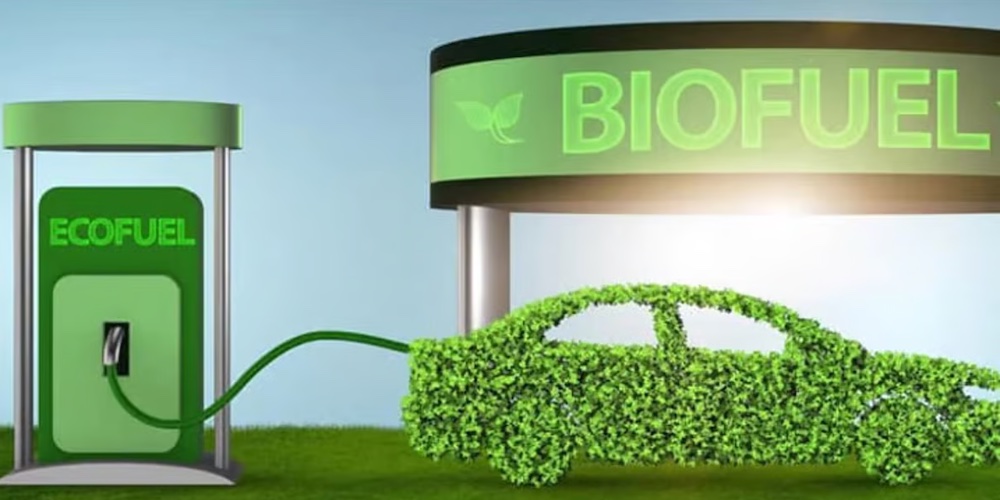Pradhan Mantri JI-VAN Yojana

Augmenting Advanced Biofuel Projects for Sustainable India
Ethanol has emerged as a fuel for a sustainable future, revolutionising our approach to eco-friendly living. This biofuel, derived from renewable sources, significantly reduces greenhouse gas emissions and dependence on fossil fuels, making it a cornerstone of an environmentally friendly ecosystem.
The Government of India has championed this cause through the Pradhan Mantri JI-VAN Yojana, an initiative to boost ethanol production. Recently, the Union Cabinet, chaired by Prime Minister Narendra Modi, approved an amendment to the scheme, extending its implementation timeline by five years to 2028-29.
Pradhan Mantri JI-VAN Yojana: Key Objectives
To attract greater investment and the latest advancements in 2G ethanol capacity in the country, the modified Pradhan Mantri JI-VAN Yojana was notified on March 7, 2019. It will now include a broader scope for biofuels derived from lignocellulosic feedstocks such as agricultural and forestry residues, industrial waste, synthesis (syn) gas, and algae.
Additionally, the scheme will support “bolt-on” plants and “brownfield projects,” allowing them to leverage their existing infrastructure and enhance their viability.
Emphasising innovation, the scheme will also prioritize project proposals that introduce new technologies and utilize diverse feedstocks. Its objectives include providing farmers with remunerative income for agricultural residues, combating environmental pollution, creating local employment opportunities, and bolstering India’s energy security and self-reliance.
By fostering the development of advanced biofuel technologies, supporting the Make-in-India Mission, and contributing to the goal of net-zero GHG emissions by 2070, the Government of India demonstrates its commitment to a sustainable and self-sufficient energy future.

Ethanol Blended Petrol (EBP) Programme
The Government has actively promoted blending ethanol with petrol through the Ethanol Blended Petrol (EBP) Programme, where Public Sector Oil Marketing Companies (OMCs) sell ethanol-blended petrol.
Since the inception of the EBP Programme, ethanol blending has increased from 38 crore litres in the Ethanol Supply Year (ESY) 2013-14 to over 500 crore litres in ESY 2022-23.
The blending percentage rose from 1.53% to 12.06% during this period. Notably, the blending percentage reached 15.83% in July 2024, and the cumulative blending percentage has exceeded 13% in the current ESY 2023-24.
Key Facets of EBP Programme
1. Blending Target: OMCs aim to achieve a 20% ethanol blending target by the end of the Ethanol Supply Year (ESY) 2025-26.
2. Ethanol Requirement: Approximately 1,100 crore litres of ethanol will be needed to reach this 20% blending target.
3. Distillation Capacity: To meet the blending requirement and other uses, 1,750 crore litres of ethanol distillation capacity needs to be installed.
4. Focus on 2G Ethanol: The Government is promoting 2nd-generation (2G) Ethanol, which is derived from surplus biomass, agricultural waste, and industrial waste using advanced biofuel technology.
5. Support for 2G Projects: The “Pradhan Mantri JI-VAN (Jaiv Indhan- Vatavaran Anukool fasal awashesh Nivaran) Yojana” was launched on March 7, 2019, to provide financial assistance for 2G bio-ethanol projects.
Notable Projects
The Prime Minister inaugurated the first 2G ethanol project by Indian Oil Corporation Limited in Panipat, Haryana, on August 10, 2022.
Additional 2G projects by BPCL, HPCL, and NRL in Bargarh (Odisha), Bathinda (Punjab), and Numaligarh (Assam) are nearing completion.
Way Forward
A multifaceted approach is crucial to maximizing the benefits of ethanol in India. Expanding the Pradhan Mantri JI-VAN Yojana will enhance farmers’ incomes by utilizing agricultural residues, address environmental pollution by reducing greenhouse gas emissions, and support the country’s ambitious goal of achieving net-zero GHG emissions by 2070. Increasing ethanol blending will also contribute to India’s energy security by lessening dependence on imported fossil fuels and creating local employment opportunities.


